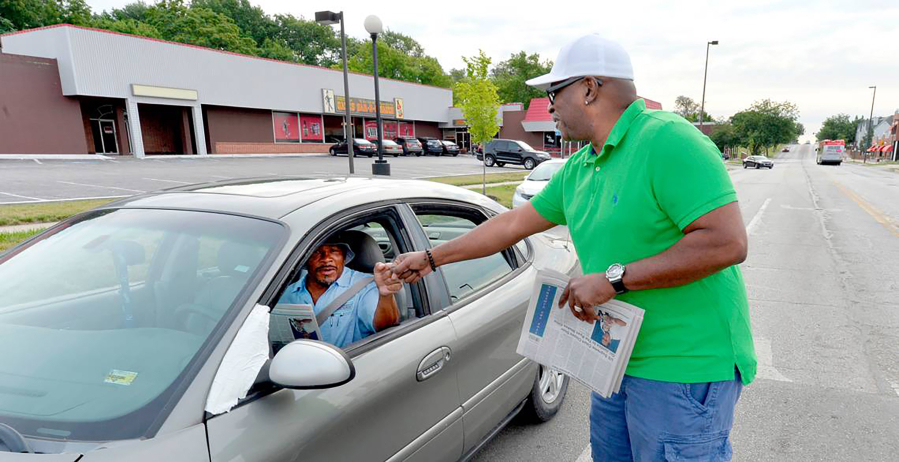A stack of fresh newspapers under his arm, Eric Wesson hopped off the curb and bounded out into the intersection of 12th Street and Brooklyn Avenue in Kansas City’s East Side. He approached the driver of a silver truck waiting on the northbound stoplight.
“How you doin’? This is my new newspaper, The Next Page KC,” Wesson said, passing the gentleman a free copy through the window. He pointed to a storefront across the street. “That’s my office — you can find copies there.” Then he pointed down the way toward the Family Mini Market. “Miss Toni sells them in her store also.”
The light turned green, and Wesson wished the driver a good day. Then he shuffled over to a car idling in the eastbound lane and did it all over again.
Wesson’s been hustling out on this East Side street corner every Friday morning for the last month, motivated by a business circumstance rarely seen in these modern times: a newspaper war.



